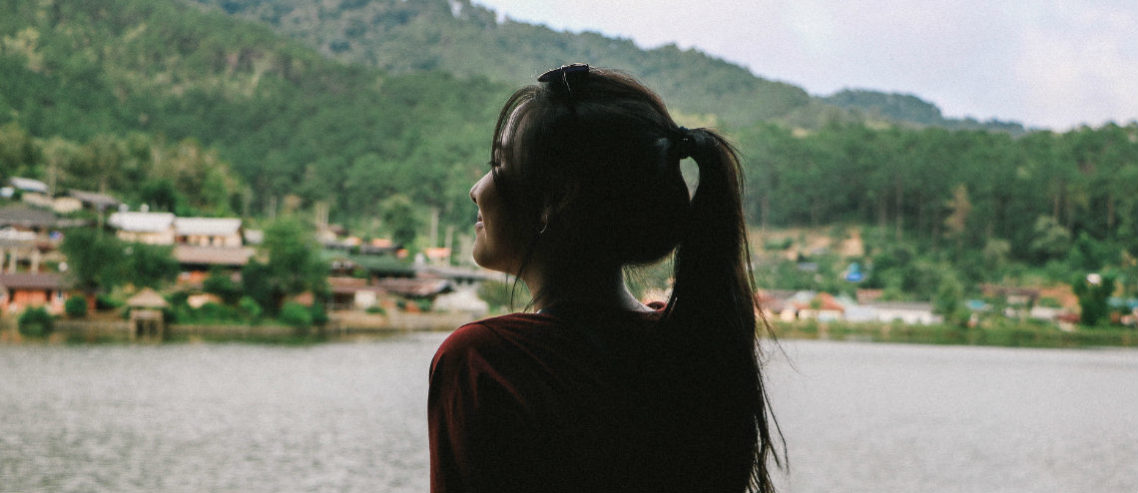Introducing the Most Common Types of Wet Season Illnesses in Thailand
Thailand is a tropical paradise loved by many people around the world. But being a tropical paradise means it has wet seasons and the illnesses that follow such as Dengue Fever, Common Flu, Pneumonia, and more. Understanding the main causes of these illnesses can help you prevent them.
There are both pros and cons to traveling or living in Thailand during the wet season. Due to the lower number of tourists, it’s usually quieter, cooler, and calmer in most regions. The wet season, however, can also bring additional risks to your health, as mentioned.
In this Pacific Prime Thailand article, we look at the most common Thailand wet season illnesses to watch out for, and what you can do to avoid them.
When is the Wet Season in Thailand
The Land of Smiles has three official seasons: hot, cool, and wet. The wet season (in other words, Thailand’s flu season) begins around mid-May every year, and continues until mid-October when rainfall starts to become less frequent.
Dengue Fever
Dengue Fever is a mosquito-borne viral infection. It is one of the common diseases in Thailand during the wet season, with higher transmission rates during this time. Transmitted via the bite of infected female mosquitoes (Aedes aegypti and Aedes albopictus), which thrive in stagnant water.
Dengue Fever usually causes body aches, fever, headache, and a skin rash with red spots. Worryingly, there’s around a 36 percent chance for this wet season illness to develop into Dengue Hemorrhagic Fever (DHF), which is associated with severe symptoms like:
- Vomiting
- Bruising
- Uncontrolled bleeding
- High fever
- Diarrhea
- Abdominal pain
Those with severe dengue fever must seek medical treatment immediately, as complications can be fatal and lead to circulatory system failure.
How to Protect Yourself From Dengue Fever
We actually discussed dengue fever prevention in one of our previous blog articles on dengue fever, but here’s a quick recap of the most important precautionary measures people living or traveling in Thailand should be aware of:
- Get the dengue vaccine
- Wear loose, long-sleeved clothing
- Use an insect repellent
- Remove water containers around your home
- Consider purchasing an insecticide-treated bed net
Hand-foot-and-mouth Disease
As a contagious viral infection, hand-foot-and-mouth disease spreads through physical contact with the infected person’s bodily secretions. It is common among young children, with potential complications ranging from meningitis, encephalitis, paralysis, and more.
In most cases, the patient will suffer mild symptoms but will recover in several days. We recommend seeing a doctor if it keeps your child from drinking liquids. See below for a list of symptoms commonly associated with hand-foot-and-mouth disease:
- Fever
- Muscle aches
- Painful red lesions on the inside of the mouth
- Red rash on palms, soles, and occasionally the buttocks
- Loss of appetite
- Irritability in toddlers and infants
How to Protect Yourself From Hand-foot-and-mouth Disease
Avoid close contact with people infected with the disease and using their personal items. It’s also important to wash your hands frequently and only consume thoroughly cooked, steaming hot food.
Pneumonia
Another common disease in Thailand is Pneumonia, which is a wet season illness. Characterized by infection of one/both lungs, people with pneumonia usually experience physical symptoms such as shortage of breath, clammy skin, fever, chills, cough, and shaking.
Pneumonia can be a side effect of other health conditions – e.g. asthma. While most cases of pneumonia can be treated successfully, it can be fatal if left untreated – especially among young children, the elderly, and those with weakened immune systems.
How to Protect Yourself From Pneumonia
Pneumonia is highly contagious, so it is important that you try to keep others from getting infected as well. If you’re suffering from any of the above-mentioned symptoms, make sure you see a doctor as soon as possible. Maintaining good personal hygiene is also ke as your hands are in constant contact with different types of bacteria, you should make it a habit to wash them with soap frequently and thoroughly to lower your risk of infection.
Japanese encephalitis
Like dengue fever, Japanese encephalitis is also a mosquito-borne illness that can, in severe cases, lead to inflammation of the brain.
While the risk of contracting this wet season illness is not very high when compared to the incidence rates of other illnesses such as dengue fever , you are at a higher risk if you live or travel to rural areas for a prolonged period of time.
In Thailand, the disease is more common in the northern region like Chiang Mai Valley.
People infected with Japanese encephalitis will usually develop the following symptoms:
- Fever
- Confusion
- Vomiting
- Headache
- Difficulty moving
In severe cases, swelling can develop around the brain, and result in cognitive/neurological damage.
How to Protect Yourself from Japanese Encephalitis
The most effective ways of protecting yourself from Japanese encephalitis include preventing mosquito bites (e.g. by using an appropriate insect repellent), and getting the Japanese encephalitis vaccine at least 6 weeks before traveling to a high risk area.
Leptospirosis
Leptospirosis is a rare bacterial disease that affects both humans and animals. It’s spread through contact with soil, water, and food contaminated with the blood, urine, or tissue of an infected animal. The disease can be found in dogs, rodents, buffalos, and farm animals.
You’re more at risk if you spend a lot of time outdoors or work closely with animals. As such, certain occupations, such as farmers, veterinarians, are also more prone to contracting leptospirosis. In severe cases, patients may develop meningitis, kidney malfunction, or even death.
Common symptoms of leptospirosis include:
- Fever
- Headache
- Skin rash
- Jaundice (i.e. yellowing of your skin and eyes)
- Muscle aches, especially on your legs
- Vomiting
However, it’s interesting to note that some infected persons display no symptoms at all.
How to Protect Yourself From Leptospirosis
Avoid stepping on puddles as they may be contaminated by animal urine. It’s also a good idea to wear water repellent boots and wear long pants. Most importantly, avoid touching your eyes, ears, and mouth after coming into contact with contaminated substances.
Flu
The wet season coincides with the flu season in Thailand. This is because people are indoors together more often when it’s raining, which increases the risk of spreading and contracting viruses. The flu is one of the most common diseases in Thailand during the wet season. This is because in the tropics, where the air stays hot all year long, the flu season tends to peak with the heavy monsoon rains.
If you have a cold, you will usually experience symptoms like coughing, fever, and sneezing for several days. However, flu symptoms can be more serious – e.g. high fever, body- and headaches, fatigue – and usually lasts longer, too.
Although the flu itself is not usually harmful, it can lead to complications among those with certain medical conditions, such as asthma, sinusitis, and bronchitis.
How to Protect Yourself from the Flu
The best form of protection against the flu is to stay healthy and boost your immunity. Regular exercise and a nutrient-rich diet are therefore key. The flu vaccine is also highly recommended, especially if you’re more at risk of developing medical complications arising from flu.
Malaria
Last but not least, malaria is another health risk to watch out for – especially during the wet season. While there is no risk in the cities of Bangkok, Chiang Mai, and Pattaya, those traveling to more remote or rural areas should be aware of the presence of infective female Anopheles mosquitoes.
There are five species of human malaria parasites, the most dangerous being Plasmodium falciparum. Characterized by flu-like symptoms (e.g. chills, headache, malaise, fever), those experiencing symptoms should seek medical attention as soon as possible. This is because malaria can lead to severe seizures, mental confusion, coma, and even death.
How to Protect Yourself From Malaria
Those traveling to malaria-present areas should consider antimalarial medication, and use a mosquito bed net and insect repellent to avoid getting bitten by Anopheles mosquitoes.
Does Your Expat Health Insurance cover Wet Season Illness?
Treatment for wet season illness can be costly in Thailand, especially if you require hospitalization at private hospitals, or if complications occur. Therefore, we recommend choosing an expat health insurance with higher annual limits so you don’t have to worry about hospital bills stacking up.
Not only will expat health insurance cover your cost of treatments while in Thailand, but it will also cover a number of other health problems you may face. What’s more, if your plan has vaccination benefits, you can also use it to cover all essential inoculations for Thailand.
In need of an insurance plan? Pacific Prime Thailand can help. As Asia’s leading insurance broker, we have over two decades of experience helping expats understand insurance jargon, compare health insurance, and select the most appropriate plan, which includes a wide range of benefits, such as:
- Inpatient insurance
- Outpatient insurance
- Maternity coverage
- Dental coverage
- International health coverage
- Pre-existing conditions coverage
- Vision insurance
- And more!
Contact us today for a free quote.
- Coronavirus Outbreak: A Short Guide and Update for Expats in Thailand - September 4, 2023
- Everything You Need to Know About Cannabis Usage in Thailand - August 28, 2023
- Complete Guide to Preventing Hepatitis A and B in Thailand - August 23, 2023





Comments
Comments for this post are closed.